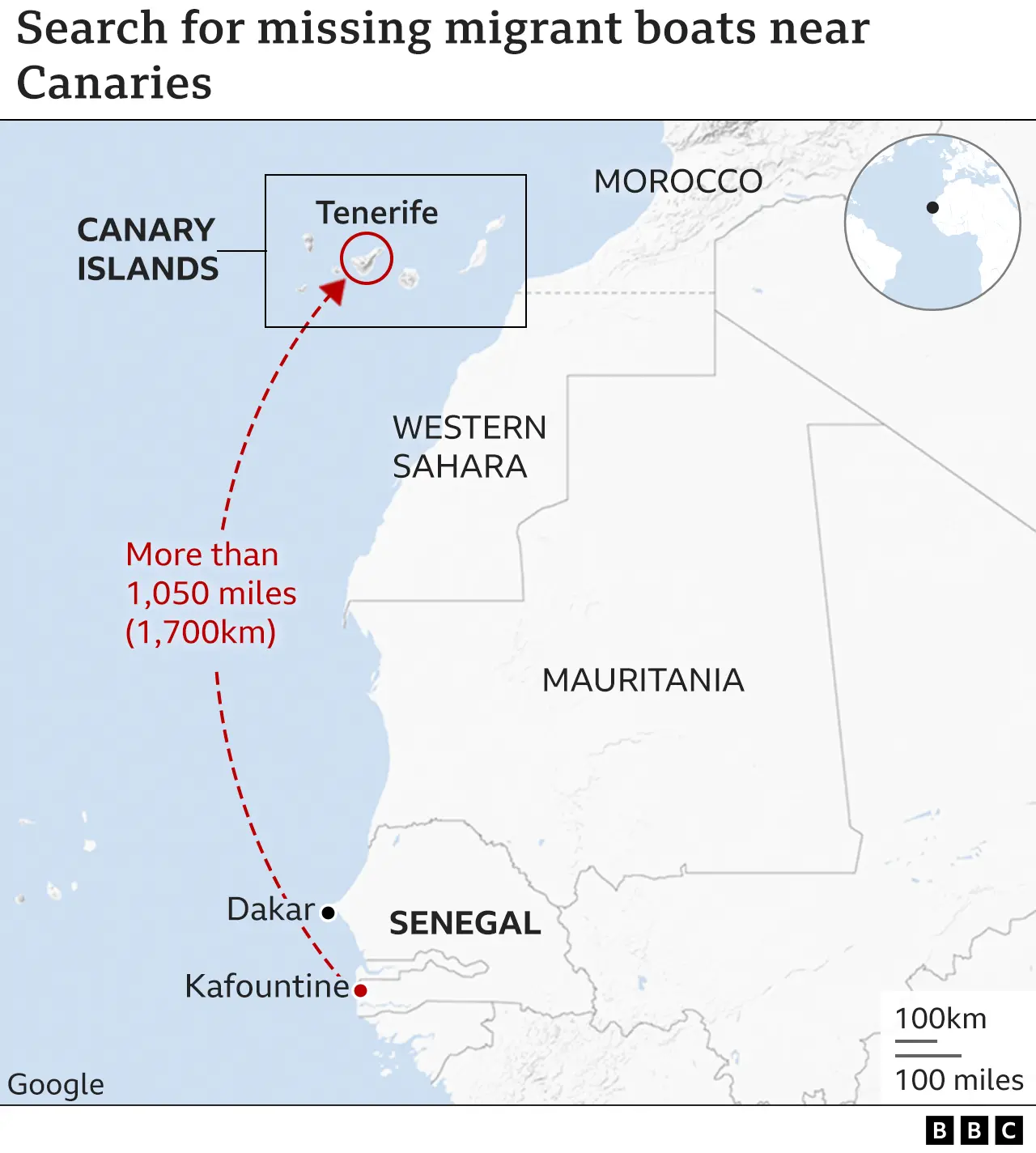Spain coast guard spots boat during search for missing migrant vessel
The Spanish coast guard says one of its aircraft has found a boat during a search for a vessel carrying migrants that went missing more than a week ago.
The boat was 71 miles (114km) south of Gran Canaria and had around 200 people on board, the coast guard said.
It added that one of its vessels has been sent to assist the rescue.
The aid group Walking Borders earlier said the fishing boat sailed from a coastal town in southern Senegal that is roughly 1,700km from Tenerife.
It said the vessel had 200 people on board when it left Kafountine on 27 June, heading for the Canary Islands. Many children were said to be on board.
Two similar boats carrying dozens more people are also said to be missing.
There are few details about the other two boats - however, Walking Borders told the BBC that one had about 65 people on board, the other up to 60.
The two smaller boats are thought to have left Senegal on 23 June - four days before the larger vessel.
The news comes just weeks after Europe saw one of its worst Mediterranean migrant shipwrecks, when an overcrowded trawler sank off the Greek coast.
At least 78 people were confirmed drowned, but the United Nations (UN) reported that up to 500 were still missing.
The voyage from West Africa to the Canary Islands is among the most dangerous routes for migrants, not least because they usually sail in simple dugout fishing boats that are easily tossed by powerful Atlantic currents.
Last year at least 559 people died at sea attempting to reach the Spanish islands, the UN's International Organisation for Migration (IOM) says. The death toll for 2021 was 1,126.
However, the IOM says information about the number of departures from West Africa is scarce and shipwrecks are often not reported.
It adds that the migrants are often from Morocco, Mali, Senegal, the Ivory Coast, or are of other sub-Saharan origins.
According to Spain's Interior Ministry, 15,682 people arrived in the Canary Islands without permission in 2022, a decrease of more than 30% compared to 2021.
"Despite the year-to-year decrease, flows along this dangerous route since 2020 remain high compared to prior years," the IOM says.





Post a Comment